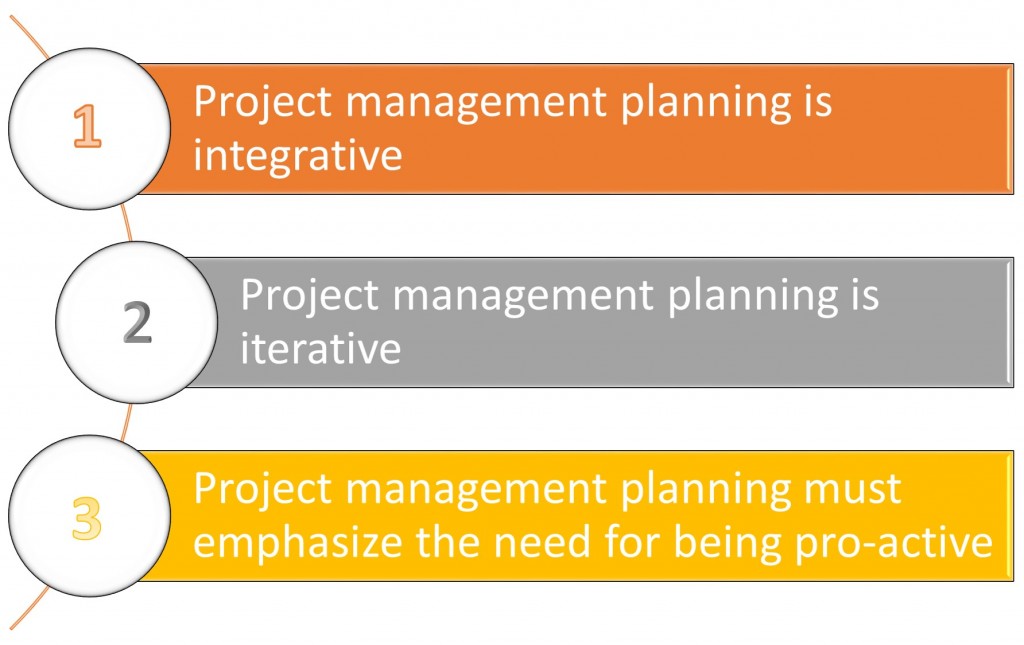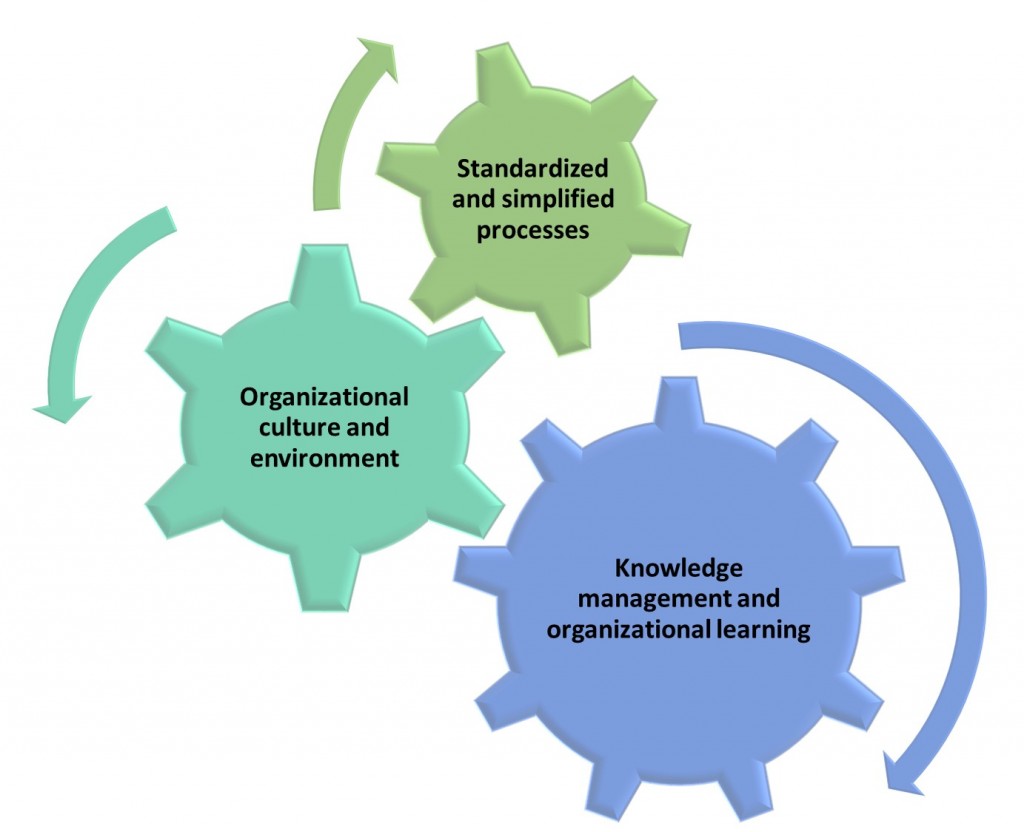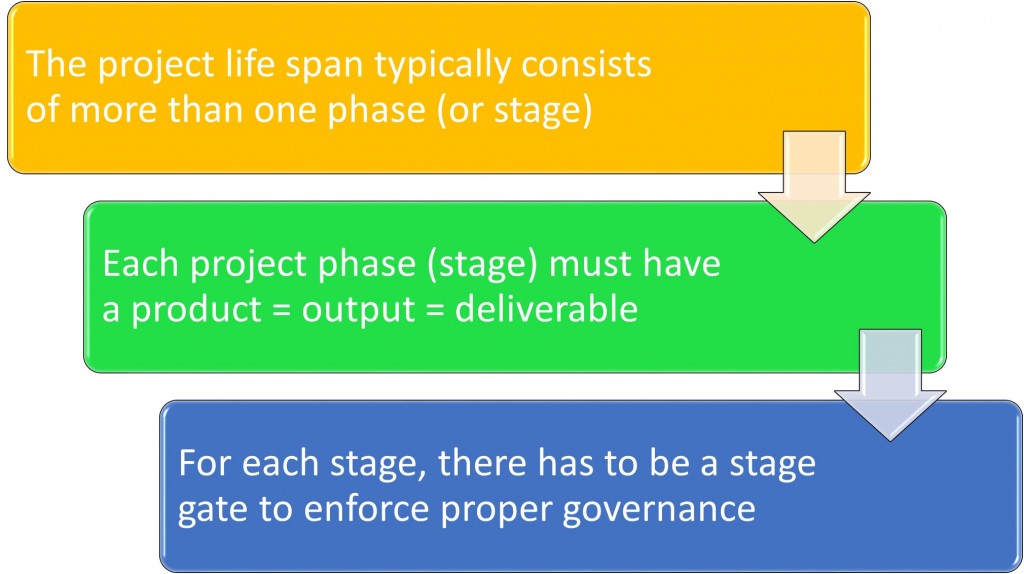This is the first of a series of short articles on “Three principles of … ”
In this article we will just tease you and introduce the various sets of three principles …
The first set
Three Principles of Project (Project Management) Planning
 The first set is the Three Principles of Project (Project Management) Planning. These are:
The first set is the Three Principles of Project (Project Management) Planning. These are:
- Project management planning is integrative; this means (a) as we plan a project we must consider all aspects, functions, processes, and other elements; and (b) ensure that all these pieces are integrated, and their impacts on each other is well understood and incorporated into the plan.
- Project management planning is iterative. Although this is related to the first principles it is important on its own. The main point here is as we plan the various elements (while we are still in the planning processes), (a) output from a given process typically includes update of one or more input, and (b) the output might require us to go to an earlier process and modify its output.
- Project management planning must emphasize the need for being pro-active.
The second set
The Three Principles of Project Management Methods
- Every project follows a project life span (project life cycle) approach where each project is subdivided into project phases or stages.
- The split is on the basis that each project phase (stage) has a specific purpose and will produce an output, or deliverable.
- To ensure proper governance and control, each phase (stage) must have a phase exit or a stage gate.
The third set
The Three Principles of Project Management Excellence
 This is a tougher one to explain so for today we will just introduce leaving the detailed explanation for another day. First we must explain that what we mean by project management excellence is achieving higher level of organizational project management maturity.
This is a tougher one to explain so for today we will just introduce leaving the detailed explanation for another day. First we must explain that what we mean by project management excellence is achieving higher level of organizational project management maturity.
- Organization cannot depend on people expertise alone to excel, they need to have standardized and simplified processes in place. These could be operational or project management processes; of course our interest here is project management.
- In project management organizational culture is crucial for the success of any OPM (Organizational Project Management) System. A culture open for growth, transparency, and respect project management as an independent domain that is critical for success.
- Knowledge Management and Organizational Learning is essential since we cannot grow if we do not learn, we can plan properly without the knowledge, expertise, and historical organizational records.
As we mentioned earlier, this is just an introduction article; more details in future articles.
What do you think? Do you have your own set of principles that you like to publish here, we welcome your opinion and input.
[contact-form][contact-field label=’Name’ type=’name’ required=’1’/][contact-field label=’Email’ type=’email’ required=’1’/][contact-field label=’Website’ type=’url’/][contact-field label=’Comment’ type=’textarea’ required=’1’/][/contact-form]


This is new. I like it. Simple and focused.
This comment was posted on LinkedIn PMO group by Mike McCormick, https://www.linkedin.com/groups/Three-principles-project-management-106439.S.5980928840447377412view=&gid=106439&item=5980928840447377412&type=member&commentID=discussion%3A5980928840447377412%3Agroup%3A106439&trk=hb_ntf_COMMENTED_ON_GROUP_DISCUSSION_YOU_CREATED#commentID_discussion%3A5980928840447377412%3Agroup%3A106439
Nice presentation
The second set
The Three Principles of Project Management Methods showing a pictogram (1st part) “The project life span typically consist of more than one phase (or
stage)” is referred to as the “life cycle”.
Now for your next step
the third set
The Three Principles of Project Management Excellence
this refers to the “strategic maturity level” progression. Here’s a model which should help to understand what SUKAD is referring to:
Integrated Strategic Maturity Model (ISMM): http://www.mccormickpcs.com/images/ISMM_Model.pdf